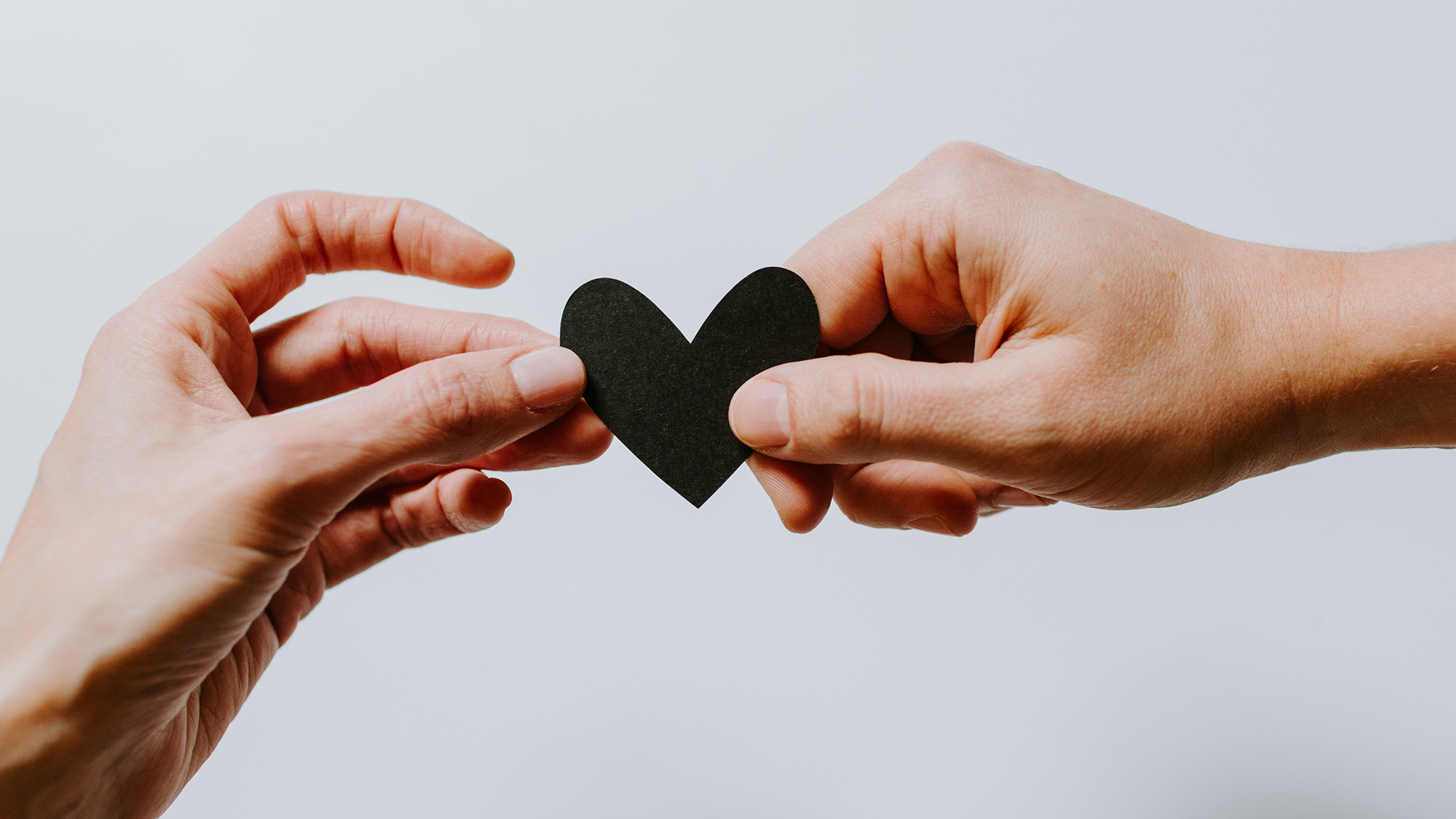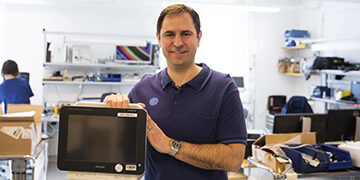05/05/2020 Companies that take quick action to support the healthcare industry
Closed borders, halted imports and increased amount of patients. The corona crisis has led to a shortage of supplies, personnel and other resources in the Swedish healthcare industry. Here are some of the companies that stepped up to help.
It’s a Saturday night in March, and Tobias Johnsson, department manager at Beijer in Västerås, Sweden, has already made himself cozy in the couch with his family watching TV. Suddenly he gets a push notification from his news app, saying the healthcare is experiencing a massive shortage of protective gear. Beijer is a hardware supply chain in Sweden and sells protective equipment such as gloves and masks. Tobias immediately set off to his computer to check the available stock on protective gear. The same night, he jumped in to his car, went in to work and emptied the shelves.
“When you have the opportunity to help, I think you should,” said Tobias.
He then called an acquaintance who works at the intensive care and asked if he could swing by and leave some supplies. Later the same Saturday evening, Tobias drops off the protective gloves and masks at the emergency room, which was received gratefully by the personnel at intensive care, who had confirmed they were having a hard time getting supplies.
The following days, many other Beijer stores followed in Tobias’ steps. They emptied their stock and donated their protective gear to local hospitals.
“The healthcare workers have a challenging job as it is. That’s when we felt we can contribute,” said Tobias.
Beijer donated thousands of gloves and masks throughout Sweden. Their actions inspired their competitors to do the same, which resulted in more supplies being delivered to healthcare institutions.
“We need more solidarity in our society,” said Tobias. “Kindness is underrated.”
“Throughout all years, I’ve been telling my children to treat others the same way they want to be treated. I would have been very grateful for all the help I could get if I was the one standing helpless without supplies.”
Two other companies that took action immediately are 3DVerkstan and Nordentic. They both work with 3D-printing products and parts.
Patrik Rosén at 3DVerkstan tells us how the Facebook group The Healthcare Help [Original name in Swedish: Sjukvårdshjälpen] contacted him at the beginning of the pandemic asking for 3D-printed protective visors. Patrik and his colleagues took instant action. During the night between Friday and Saturday that same week, they had come up with a design.
“We all sat on our chairs at our homes..and designed in full speed,” Patrik tells us. On Saturday the production started, and on Monday they had between 300 and 400 protective visors ready to be delivered to hospitals and other healthcare institutions.
That’s when the devastating news came. The visors could not be delivered because the Swedish Work Environment Authority requires all supplies to be CE marked. CE marking is a certification standard required for all products distributed within the European Union.
But what looked like an impossible obstacle to come by quickly changed. Because of the unusual situation the world is currently in, and thanks to all the press around the company’s initiative, the Swedish Work Environment Authority did an exception. Something that came like a relief for the caretakers.
“We still today receive emails from…all around the world,” said Patrik. “Both from people who 3D-print and want to thank us for the design, but also pictures from hospitals and doctors wearing the visors and saying ’thank you’.”
3DVerkstan printed and delivered between 2000 and 3000 protective visors to the healthcare industry. Today, the project has been moved to Stockholm Makerspace, a nonprofit workshop, and 3DVerkstan has resumed their daily business.
Like Tobias at Beijer, Patrik also mentions the importance of businesses checking in with local hospitals and healthcare institutions to see if there is anything they can do to help. “It’s a responsibility one have. Those who can [help] should do what they can.”
Filip Truedsson, CEO at Nordentic, a company that runs dental labs in Scandinavia, agrees. “You don’t need to be a doctor to help out in health crises.”
The company has, together with partners, 3D-printed and delivered around 5000 protective visors and spatulas, Filip tells us. Just like Beijer and 3DVerkstan, the company took quick action when they heard about the healthcare industry’s crisis of supply shortage.
One Thursday, Filip received a call and query for 2000 protective visors from the hospital in Ystad, a town in the south of Sweden. After that call, the printers were going hot, printing visors almost 24/7.
“We worked around the clock that weekend,” he said. “We delivered 200 visors on Monday.”
“If the society and healthcare doesn’t work, our business doesn’t work. By helping the society, we indirectly help our business.”
Filip points out the advantage of being flexible, cooperation and having the ability to solve issues immediately. He tells us how their vice president, Johnny Tekin, an experienced entrepreneur, contacted other suppliers who could produce protective visors quicker using other methods.
“It’s two different worlds. The entrepreneurial is used to solve issues…now. Not in 15 minutes, or in a month, or in a year. The public healthcare doesn’t have that,” Filip said and continues. “How can a vice president with a big company obtain 5000 visors in a few days, when the healthcare institutions couldn’t? But there’s no point to put further thought into that, it just had to be done, and so we did.”
Per Carleö, Marketing Director at Volvo Cars Sweden, agrees on the importance of companies helping out in times of crises.
“It really makes you realize how global we are and how dependent we are of each other,” said Per. “We felt it was important to do what we could to help.”
The company offers around 300 cars to support the healthcare. The cars are primarily used to transport care workers in need to do house visits and to transport medical supplies. It’s an international initiative implemented at Volvo Cars worldwide, said Per.
The company also helped produce protective visors, contributed to the Swedish Government’s initiative ‘Hack the Crisis’ and cooperates with nonprofits like WeFightCovid.org and Red Cross.
Volvo Car’s brand is known for its safe cars. To contribute by offering safe transportation was therefore a given fact, said Per.
“Volvo Cars stands for safety and sustainability. To offer safe transport and help the society in a sustainable way is spot on for what we represent and work for day and night. It felt important to do whatever we could.”
The list of contributing businesses grows day by day. Some additional companies that we’ve heard about are Pressbyrån, Nordic Choice, Ambea, Ahlsell and Blekinge Institute of Technology.
Pressbyrån, a chain of convenience stores in Sweden, is offering free coffee and pastries to all employees within the healthcare industry.
The hotel chain Nordic Choice has been heavily affected by the crisis and forced to furlough around 4500 employees in Sweden. Thanks to a cooperation with Attendo, a care company, the furloughed employees have been recruited to help support the healthcare industry within maintenance and cooking.
The care company Ambea has started a collaboration with the Scandinavian airline SAS, as well as hotel and restaurant chains. They train and recruit furloughed personnel into caretakers to support the care industry.
It’s a tough time for many companies and society at large, no doubt. But, these companies bring hope, inspire and show the importance of cooperation.
Precuris AB is a professional developer and project manager of healthcare institutions. We have several years of experience working as a consultant within healthcare and life science. Some of our clients include New Karolinska Hospital, Capio S.t Göran Hospital, Stockholm County Council and Aleris.





